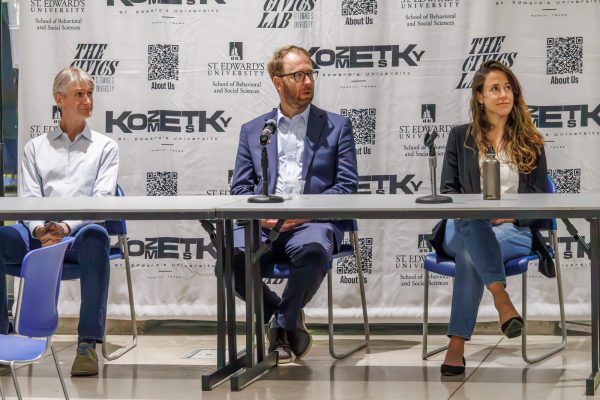SEU communication director explains student refunds on courses, technology
Pixabay/ Collage by Gracie Watt
COVID-19 has caused students to move off of campus and continue class online. This leaves students and families wondering where their money is going now.
In an effort to slow down the spread of COVID-19, universities across the world have closed, sending millions of students back home. In the midst of this pandemic, institutions are left with deciding what to refund and what not to refund to their students.
At St. Edward’s University, students are required to pay a yearly technology fee of $500. If students want the accessibility of parking their car on campus they are charged an extra $310. Other fees are also applied to student accounts.
Mischelle Diaz, Director of Communication for St. Edward’s University, refers students to the university’s website for information about refunds. The information includes the following:
The university has made the decision to grant credit for the last 40 days of the semester for those students who live on campus. The credit will be applied to any unpaid balance. Students should see the changes in their accounts in about 30 days. Any unused meal plan and Topper Tender, which is the prepaid debit account that students are able to utilize on campus and some off-campus locations, will roll over to the next term. Exchange students, dual degree students, and those graduating this semester will receive credit through direct deposit if they have a negative balance on their account.
Balances on the student’s account created by the housing credit are eligible for a cash refund at the conclusion of the student’s final semester. Students planning to withdraw will not be eligible for a cash refund.
Diaz says that a decision about parking refunds has not been made yet.
“While the university has already provided some students with credits and refunds on housing and meal plans, the university’s leadership is working out details regarding fee refunds for other services like parking.”
As for computer and other course fees, Diaz says the transition to online instruction has incurred costs.
“The funds collected through the university’s technology and course fees, much like tuition, have been and are being utilized to support the delivery of courses. The university is projecting to spend well beyond the revenues collected by these fees to support the combination of in-person and remote instruction that has been necessary during the spring semester,” she says.
Students are also facing unexpected expenses and disruption.
“The situation we are living through has been completely unexpected and out of our control,” Panamanian international student Gabriela Castillo says. “It is upsetting to have to pay for the facilities we are not presently using.”
Travel expenses are another difficulty students like Gabriela have to face. In addition, students like junior Cristobal Garcia say their families are struggling.
“Many families, including mine, have no income,” Garcia says. “By refunding charges that are no longer being used, it could help supplement income for households like mine.”









